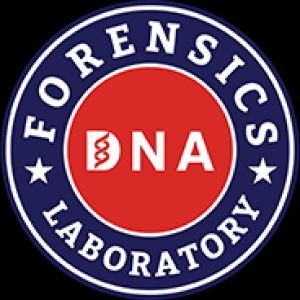Court Admissible DNA Test for Legal Matter
Posted by DNA Forensics Laboratory on March 24th, 2021
DNA Tests are the only way people can prove their biological identity. DNA carries the genetic information from an individual to his/her children. This makes it possible for the person to check for and prove the biological relationship with his/her child and other relatives. There are many laboratories doing DNA tests in India. However, as the need for a legal DNA test arises for a legal matter, one might have far fewer options for a good DNA testing laboratory. Such a court-admissible DNA test always requires a chain of custody. It adds to the reliability and admissibility of the test report in the courtroom.
Now the question arises, what parameters make a DNA testing lab perfect for these court admissible legal DNA tests? This article will share light on all aspects of a legal DNA test -like, how and where you can get the DNA test, the factors deciding the standard procedures for a legal DNA test, etc.
 How is a legal DNA test different?
How is a legal DNA test different?
Generally, a DNA test, done for one's knowledge only, can be called a peace-of-mind DNA test, as it focuses on providing the customer his/her peace of mind with the information the DNA test may provide. On the other hand, a legal DNA test is meant for use as evidence - of one's genetic profile/identity, of a genetic relationship between two or more individuals. The following are some of the areas where a legal DNA test finds its application.
-
In the identification of a person.
-
Inheritance of will/property.
-
Seeking legal guardianship of a child.
-
Paternity and Maternity disputes.
-
Infidelity
-
Forensic investigation of crimes.
A legal DNA test covers some other types of tests as well. For example:
-
Immigration DNA test - This type of DNA test is required for the legal formalities within immigration cases, where the sponsor and the beneficiary of the immigration have to prove their genetic relationship.
-
Organ Transplant DNA test - According to the latest amendments in the Transplantation of Human Organs Act in 2014 (THOA, 2014), the living organ donor has to prove his genetic relationship with the organ recipient.
These legal DNA tests, directly and indirectly, help in stopping the illegal practices within such cases. A legal DNA test between the parties makes sure that only the right person/dependent enters a country in an immigration case. It checks illegal immigration, helps stopping human trafficking and smuggling, and many such criminal activities.
In organ transplant cases, the organ transplant DNA test only lets an actual and a blood-relative donate the organ, thus helping discourage professional organ donors and the crimes associated with these activities.
What are the procedures involved in a Legal DNA test?
The first step in a legal DNA test is the court order. Should the need for a legal DNA test arise in a court case, the hearing judge will first order for a DNA test? As a standard procedure, the court always orders the test from a government laboratory.
Due to the huge number of DNA tests already in-line, it may take a few weeks to months for your turn to come. In a court case, such a time-delay may not be ideal for people. So they have to request the judge that they want to get the DNA test from a certified private laboratory and mention the lab's name.
The judge will then order that particular laboratory for the legal DNA test. The DNA sample is collected in front of the judge. Alternatively, the judge may appoint a representative to get the DNA test done with a chain of custody. A chain of custody means that the court-representative will be present during the DNA sample collection.
The test report for a court-admissible DNA test is sent by the testing laboratory to the judge directly. It helps maintain the authenticity and discretion of the test report and is mandatory—the judge makes the decision based on the report of that legal DNA test.
Which Laboratory to Go to For a Court Admissible DNA test?
DNA Forensics Laboratory Pvt. Ltd. is a NABL certified DNA testing company for court-admissible legal DNA tests. DNA Forensics Laboratory is the only Indian laboratory for a legal DNA test.
With hundreds of localized collection centers in most of India's major cities, DNA Forensics Laboratory is already providing its services all across India. They have done court-admissible legal DNA tests for many courts in India and have been the only and a trusted choice for a legal DNA test in India.
Besides being the only providers of a legal DNA test, DNA Forensics Laboratory is also trusted for the following reasons:
-
Highly qualified and trained Sample collection agents visit the court in person for the sample collection and securely bring the sample to their testing facility.
-
The technical staff makes sure the DNA sample is analyzed with 100% accuracy and cross-check the sample analysis DATA twice before generating the test report.
-
The test report is sent to the judge in a tamper-proof package.
An excellent track record, highly trained staff, up-to-date technology & equipment, the fastest reporting facility, and high code-of-ethics make DNA Forensic Laboratory the ideal and, again, the only choice for a court-admissible DNA test in India.


